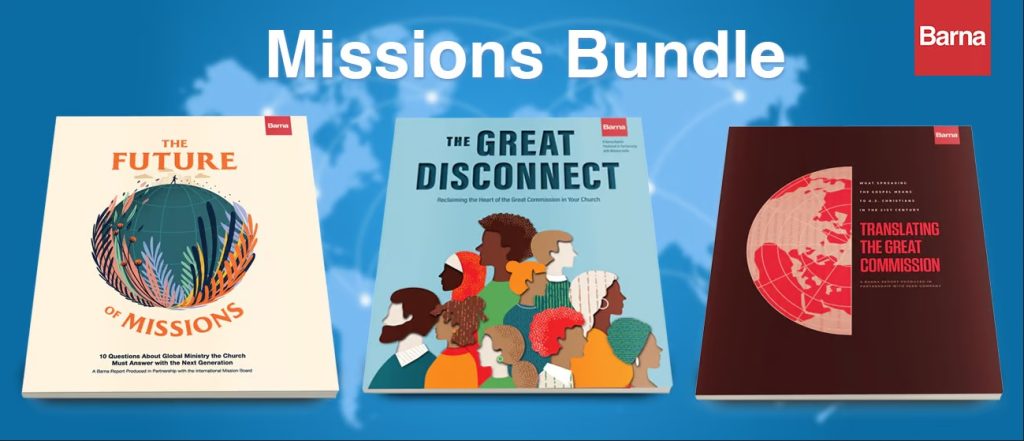Five Practical Principles for Mission Mobilizers From OM’s George Verwer
By Shane Bennett
Read or share the email edition.
Since mission mobilizer, leader, and author George Verwer died on April 14, we’ve seen many tributes. Read a short but strong one from OM USA’s President and CEO Andrew Scott (Christian Post). In his final video on YouTube, just a week before he died, George said he hoped he’d be remembered for what he called “messiology.” So let’s remember. Here’s what Shane wrote for Missions Catalyst a few years back when the “Messiology” book came out. Scroll down for how you can get a free copy. ~ MW
You know those people you really wish you could hang out with? Heroes beyond your reach? Maybe you’ll shake their hand or get a picture with them, but there’s no way they’re going to be weekly-get-together, maybe-go-camping-in-the-fall kind of friends. George Verwer, the founder of Operation Mobilization, is like that for me. We go way back: I can literally remember stuff he told me (and 17,000 others) at Urbana in 1983. Later talks and books of his have shaped me in significant ways.
Right now I’m really jealous of the guy. I just read a book he wrote called Messiology, and I so wish I’d come up with that term! I love it! I wonder if I was sleeping or deep in a must-watch episode of The Office when God was handing out “messiology” and I missed it. More likely he knew George would hit it out of the park. And so he has.
“Where two or three are gathered together in His Name, sooner or later there will be a mess.”
– George Verwer
I love this little book and want to point out some of the ways the book speaks particularly to mobilizers—and why you might want a few physical copies on hand to share.
What Is Messiology?
George says, “Put simply, messiology is the idea that God in his patience, mercy, and passion to bring men and women to himself often does great things in the midst of a mess… Over the course of 57 years in over 90 countries and thousands of churches and other organizations, I have often observed some kind of mess with them. Sometimes clear sin is involved that needs to be repented of. Other times it’s just silly stuff. I have said, and I feel it strongly, that no matter how filled we are with the Holy Spirit, we are still human. Our humanness has its beautiful side and its messy side.”
Pause for a second. Any messes in your life and work right now? If you’re at all like me, this probably doesn’t require a lot of mulling over. Likely a few popped into your head instantly. George is right when he says, “Where two or three are gathered together in His Name, sooner or later there will be a mess.”
Here are five things from this little book that I think are particularly helpful for us as we advocate for God’s purposes among the nations, work in the roles he has given us, and deal with the messes we—and sometimes others—have made.
1. We’ll never fully “get” God.
That God works despite and sometimes through the messes in our lives rests on the mystery and mercy of a great God. Verwer says,
“The last verses of Romans 11 have helped me again and again: Oh, the depth of the riches both of the wisdom and knowledge of God! How unsearchable are his judgments and unfathomable his ways.”
The stamp of God on creation, on every bit of life we’re connected to, is both broader, deeper, and more subtle than we imagine. In a way that is both stunning and uncomfortable, I’m reminded that I comprehend only the tiniest slice of the great work of God at any moment. I pray for the grace to be duly humble.
2. God didn’t ask me to sign off on who he uses.
Joel Osteen? Pope Francis? Nigerians? Hard-core Calvinists? Americans? Apparently, God doesn’t feel the need to have me vet everyone he chooses to work in and through. I don’t get this: How can perhaps mistaken people be used by a good God to raise up honest disciples? It boggles the mind!
But clearly, the circle God draws and labels, “these are building my kingdom” is bigger than the one I’d draw, and I tend to think I’m pretty open in this area. I once nearly lost a long-term worker I was recruiting because I was not strong enough on some beliefs. (You’ll have to guess or ask which ones!)
Is it possible we can become so enamored with our view, our dogma, or our history that we assume God does not work outside of it? Is it possible that we waste valuable time writing papers, making videos, and holding meetings all primarily designed to point out how other people are wrong? All the while many of those “wrong” people and “wrong” methods are tools in the hands of a wise and powerful God, so intent on accomplishing his purposes of gathering people to himself, that he can and does use them! And we don’t see it.
Neither George nor I would advocate that we abandon truth, but rather rejoice in the deeper truth, the mystery of a powerful God who accomplishes his purposes through a more diverse set of humanity than we might be comfortable with.
3. Critical people annoy me to no end.
Seems wherever you look, Facebook, online and print publications, public forums, or pulpits and stages, people are constantly being critical. “This ministry isn’t committed to the Bible.” “That church is too extreme.” Really, what is wrong with people? Do they not own a Bible? Maybe they never open it. Don’t they have anything better to do than complain and criticize?
Oh, hang on: “Let there be peace on earth, and let it begin with me…!”
It is so easy for me to snip and bite, casually pointing out the shortcomings of some and the extravagances of others. In my younger days, I wasn’t even subtle: “No Christian should own a Range Rover. It’s just a ridiculous status symbol.” As I’ve gotten older and put childish ways behind me, I’ve sadly gotten more sophisticated in my criticism. Dang it! But God has mercifully reminded me through the valiant Verwer to ease up on knocking people down.
No church is perfect. Few supporters respond as quickly as we like. Every agency drops the ball. And all of us fall short of what we might be. Thank God his grace abounds.
4. I should say “I’m sorry” much more often.
Want to join me in this? Honestly. Not in an “I’m sorry you felt bad when I did that” way. More of an “I dropped the ball; I failed to respond on time; I lied to you because I was embarrassed about my mistake” way.
There are times when I’m trying to be funny and say things that are not honoring. Other times I’m arrogant and self-aggrandizing because I want to be looked at and liked. And sadly, I sometimes overlook or demean people because I don’t see how they serve my purpose.
I’m sorry.
5. Let’s love more, even when it hurts.
I cannot imagine the criticism and abuse George Verwer and his wife Drena have dealt with over the years. One of my favorite leadership quotes is, “If you want to be a leader, you’d better get used to the sight of your own blood.” I suppose the Verwers know it well.
May God give us the grace to love people when they fail us. When they impugn our motives. When they relentlessly attack, causing pain to us or worse, to ones we hold dear.
Mobilizing others and working to complete the Great Commission is messy. Thank you, George, for the happy reminder that God is big enough, good enough, and intent enough to work out his purposes for us and the world, despite—even through—the messes.
Originally published in Missions Catalyst in 2018; slightly adapted.
Want to read it for yourself? Here’s a publisher’s blurb and a way to get a copy for free.
In his most biographical book, George Verwer exercised his well-loved honesty and refreshing realism, sharing his own failures and looking at how God works through messy situations. Journey with this great man of faith as he explains that although everything we touch has its weaknesses and faults, God works through our fallenness and humanity. Join George in “messiology” and celebrate what our great God is doing and how we can be part of his work.
Download a free PDF (GeorgeVerwer.com) or purchase copies wherever you get books.



